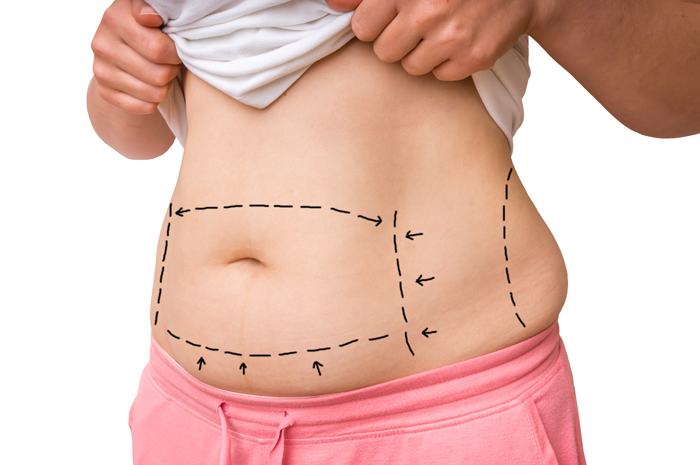Tummy Tuck Surgery in Sadashiv Peth, Pune
Also known as abdominoplasty, a tummy tuck is a cosmetic procedure that helps enhance the appearance of the abdomen. During this procedure, the excess fat and skin are surgically removed and the connective tissue present in the abdomen is tightened. A tummy tuck is suggested by the doctors when there is loose skin around the belly button area or because of a weak lower abdomen wall. It also helps boost one’s self-confidence and body image. People undergo this procedure due to various reasons, however,

the most significant ones are;
- Substantial weight loss
- Pregnancy
- Undergoing abdominal surgeries, such as C-section
- Aging
A tummy tuck can also get rid of any stretch marks below the belly button area. This surgery can also be combined with other cosmetic procedures, such as liposuction.
Doctors generally advise against it if you are;
- Planning to lose more weight in the future
- Are trying to get pregnant or planning for one in the future
- Suffer from any chronic condition, such as diabetes or a heart problem
- If your body mass index or BMI is over 30
- If your previous abdominal surgery leads to the development of scar tissue
- If you are a smoker
Request an appointment at Apollo Spectra Hospitals, Pune
Call 1860-500-2244 to book an appointment
Preparing for the surgery
If you are planning to undergo tummy tuck surgery, the first step is to consult a well-known plastic surgeon. They will;
- Take a look at your medical history and ask you questions related to any conditions you suffer from, the medications you have taken in the past and current take, any surgeries you have undergone, and more. Here, you must let your doctor know about any allergies you might suffer from.
- Then your doctor will conduct a physical exam to plan your treatment options. Apart from examining your tummy, your doctor might also take pictures of the same for their medical record.
- Finally, your doctor will sit with you to discuss the outcome you are looking for. This is when you must talk about the risks and benefits associated with the surgery to help you prepare better.
Before your surgery, you may be asked to;
- Stop smoking if you are a smoker
- Avoid certain medications as they can increase bleeding or interfere with other aspects of the surgery
- Maintain your weight for at least 12 months before your surgery
- Your doctor might ask you to lose weight if you are severely overweight before you undergo the surgery
- Make arrangements for after the surgery as you will need someone to look after you during your recovery period.
Procedure
The surgery is conducted in the hospital while you are under general anesthesia. This means you will be fully unconscious and will not be able to feel any pain during your surgery. However, in some cases, the patient is given sedatives that will keep them partially asleep. You can discuss this step with your doctor before your procedure. There is are different types of abdominoplasty all depending on the results you are expecting. Your doctor will make incisions near the belly button region to remove the skin and fat from around there. During the surgery, the connective tissues present above the abdominal muscles are tightened with sutures permanently. Finally, the skin around the belly button will be repositioned and your belly button will be brought to its original procedure. The surgery generally takes about two to three hours and antibiotics may be monitored to avoid any infection.
Post-surgery, you will notice that the incisions and the belly button will be covered in surgical dressings and small tubes might be attached to the same to drain any excess fluids. Your medical team will assist you to walk on the first day to avoid any blood clots and it is a necessary step after your surgery. The drains may be kept for a few days after the procedure.
If you maintain a stable weight after the surgery, it is a long-lasting procedure.
It depends on the type of surgery. However, for the first six weeks, you must be very careful when you are moving.
Yes, you will have to schedule follow-up visits with your doctor.
Symptoms
Our Top Specialities
NOTICE BOARD
CONTACT US
CONTACT US
 Book Appointment
Book Appointment


.svg)
.svg)
.svg)
.svg)








